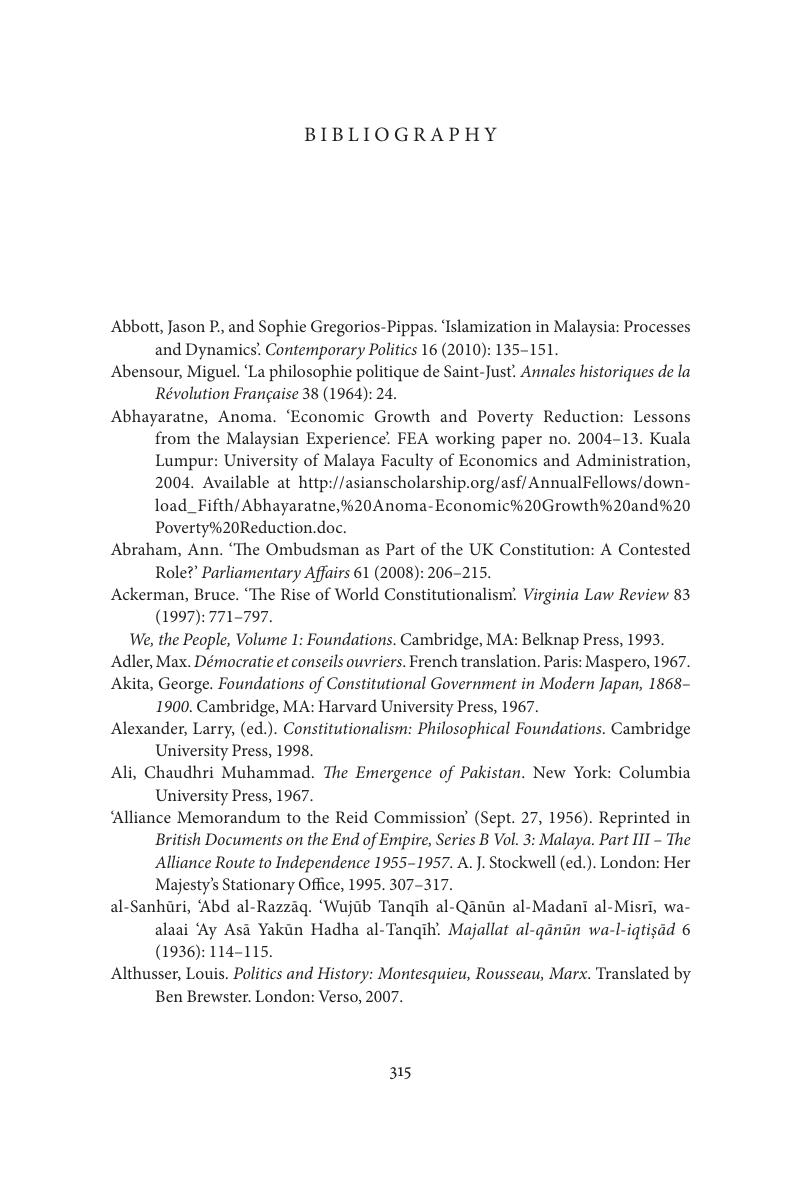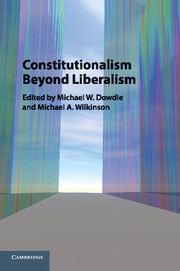Book contents
- Constitutionalism beyond Liberalism
- Constitutionalism beyond Liberalism
- Copyright page
- Contents
- Contributors
- Acknowledgments
- Introduction and Overview
- Part I Limits of the Structural-Liberal Vision
- Part II Functional Symbiosis
- Part III The Political Construction of the State
- Part IV Solidarity
- Bibliography
- Index
- References
Bibliography
Published online by Cambridge University Press: 19 January 2017
- Constitutionalism beyond Liberalism
- Constitutionalism beyond Liberalism
- Copyright page
- Contents
- Contributors
- Acknowledgments
- Introduction and Overview
- Part I Limits of the Structural-Liberal Vision
- Part II Functional Symbiosis
- Part III The Political Construction of the State
- Part IV Solidarity
- Bibliography
- Index
- References
Summary

- Type
- Chapter
- Information
- Constitutionalism beyond Liberalism , pp. 315 - 356Publisher: Cambridge University PressPrint publication year: 2017



